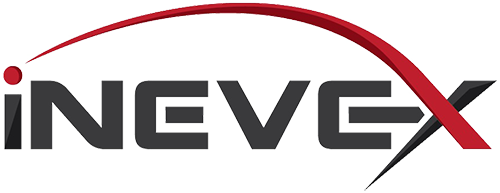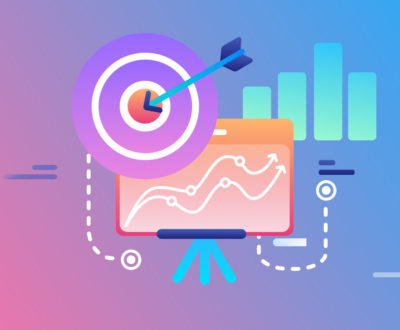SEM (Search Engine Marketing) / PPC (Pay-Per-Click)
- March 9, 2025
- Search Engine Marketing
In the world of digital marketing, Search Engine Marketing (SEM) and Pay-Per-Click (PPC) advertising are two crucial methods for driving traffic to websites. These strategies focus on placing ads where users are most likely to engage, leveraging platforms like Google Ads and Facebook Ads. Let’s dive deeper into the differences, how to run ads, best strategies, and some crucial tips for optimizing your campaigns.
Google Ads vs Facebook Ads: Key Differences
Both Google Ads and Facebook Ads are incredibly powerful platforms for advertisers, but they serve different purposes:
Google Ads:
- Intent-based targeting: Google Ads targets users based on their search intent. People searching for specific keywords are already looking for information or solutions, making them more likely to convert.
- Search Network & Display Network: Google Ads can be used across its Search Network (ads displayed in search results) and Display Network (ads shown on partner websites).
- Keyword-focused: You bid on keywords related to your business and create ads that appear when those keywords are searched.
Facebook Ads:
- Interest-based targeting: Facebook Ads allow advertisers to target users based on their interests, behaviors, demographics, and connections. It works well for brand awareness, retargeting, and engaging with potential customers.
- Visual-centric: Facebook Ads heavily rely on visuals, including photos, videos, and carousel ads. It’s best for products or services that are visually appealing.
- Less intent-driven: People on Facebook are typically browsing for entertainment, not actively searching for a solution, so the effectiveness depends on how well you can grab attention.
Which is Better? The choice depends on your goals:
- If you aim to capture people actively searching for specific products or services, Google Ads is a better choice.
- If you want to create brand awareness or engage with potential customers who may not be actively searching, Facebook Ads might be the right platform.
How to Run Google Ads
Running Google Ads involves several key steps to get the best results:
- Set Up Your Google Ads Account:
- Create a Google Ads account if you don’t already have one.
- Set up billing details, payment methods, and your campaign goals.
- Choose the Right Campaign Type:
- Google Ads offers various campaign types like Search, Display, Video, Shopping, and App campaigns. Choose the one that aligns with your marketing objectives.
- Keyword Research:
- Identify relevant keywords your target audience is searching for.
- Use tools like Google Keyword Planner or third-party tools to find keywords with good search volume and low competition.
- Create Effective Ad Copy:
- Write concise, compelling ads that align with the user's search intent.
- Make sure to include a clear call-to-action (CTA).
- Set Budget & Bidding Strategy:
- Define your daily budget and select a bidding strategy (e.g., Manual CPC, Maximize Conversions, Target CPA).
- Monitor and Optimize:
- Regularly track the performance of your ads through Google Ads dashboard.
- Make adjustments to keywords, ads, and bids to optimize the campaign for better ROI.
Best PPC Strategies for Success
- Target High-Intent Keywords: Focus on keywords that show intent to buy or take action. Long-tail keywords can be a goldmine, as they’re often less competitive and more specific.
- Use Negative Keywords: Negative keywords prevent your ads from showing up for irrelevant searches, ensuring you're only targeting the most qualified users.
- A/B Testing: Regularly test different variations of your ads to see which performs best. Test headlines, descriptions, and CTAs to optimize performance.
- Utilize Ad Extensions: Take advantage of ad extensions like site links, callouts, and structured snippets to make your ads more informative and increase click-through rates.
- Optimize Landing Pages: Ensure that your landing pages are relevant, load fast, and have clear CTAs. A well-optimized landing page can significantly improve your conversion rate.
Cost-Per-Click Advertising: How it Works
In PPC advertising, Cost Per Click (CPC) is the amount you pay each time someone clicks on your ad. This bidding model helps you control how much you're willing to spend. The actual CPC varies based on factors like:
- Keyword competition: High-demand keywords with more competition can drive up the cost.
- Quality Score: Google Ads uses a Quality Score (see below) to determine the relevance of your ad, and a higher score can lower your CPC.
- Ad Rank: Your ad position is determined by your bid amount and Quality Score.
Google Ads Keyword Research
Keyword research is a foundational aspect of successful Google Ads campaigns. It helps you identify the terms and phrases that potential customers are searching for. Here’s how to conduct effective keyword research:
- Use Google Keyword Planner: This free tool from Google helps identify search volumes and competition for different keywords.
- Focus on Long-Tail Keywords: These more specific phrases tend to have lower competition and higher conversion potential.
- Analyze Competitors: Review the keywords your competitors are bidding on to discover additional opportunities.
- Use Negative Keywords: Prevent irrelevant clicks by identifying and excluding keywords that aren't likely to lead to conversions.
SEM vs SEO: Which is Better?
While both Search Engine Marketing (SEM) and Search Engine Optimization (SEO) aim to increase visibility in search engines, they are distinct:
- SEM (PPC Ads) is a paid advertising strategy that provides immediate visibility but requires continuous investment.
- SEO focuses on optimizing your website to rank organically in search results, offering long-term, sustainable growth but taking more time to see results.
Which is Better?
- If you're looking for immediate traffic and are willing to invest, SEM is the way to go.
- For long-term organic growth, SEO is the more sustainable option.
How to Optimize Google Ads Campaigns
To maximize your return on investment, regularly optimize your Google Ads campaigns:
- Improve Quality Score: Focus on creating relevant ads, selecting targeted keywords, and landing pages that align with your keywords.
- Refine Keyword Targeting: Regularly update your keyword list based on performance data.
- Use Geo-Targeting: Narrow your targeting by specific locations to reach your ideal customers more effectively.
- Leverage Ad Extensions: Make your ads more informative and engaging to boost CTR.
Best Budget for Google Ads
The budget you set for your Google Ads campaign depends on factors like:
- Industry: Highly competitive industries may require a larger budget to see significant results.
- Target Audience: A broader audience might need a larger budget to effectively capture attention.
- Campaign Goals: The more aggressive your goals (e.g., large-scale sales), the higher your budget should be.
Generally, start with a moderate budget, test campaigns, and adjust as you see results. Many businesses start with $10–$50 per day, gradually increasing as they optimize.
Retargeting Ads Strategy
Retargeting is an effective strategy for reaching users who have previously interacted with your brand but didn't convert. Here's how you can implement it:
- Track User Activity: Use tracking pixels to capture data on website visitors.
- Create Specific Ads: Develop tailored ads that encourage users to return and complete the desired action.
- Segment Your Audience: Group users based on behaviors, such as those who viewed a product but didn’t purchase, to show them relevant ads.
Google Ads Quality Score: What is it?
Quality Score is a metric used by Google to measure the relevance of your ads, keywords, and landing pages. It plays a crucial role in determining your ad rank and CPC.
A high Quality Score (scale from 1 to 10) can help lower your cost-per-click and improve your ad positioning. It is calculated based on:
- Expected CTR (Click-Through Rate): Google assesses how likely your ad is to be clicked.
- Ad Relevance: How closely your ad matches the keyword and search intent.
- Landing Page Experience: A user-friendly, relevant landing page increases your Quality Score.
At Inevex Solutions, we specialize in helping businesses optimize their digital marketing strategies with powerful tools like Google Ads and Facebook Ads. Whether you're looking to increase visibility through SEM, drive conversions with targeted PPC campaigns, or maximize your ROI, our team of experts is here to guide you every step of the way.
We understand that every business is unique, and we tailor our strategies to meet your specific goals, budget, and audience. From keyword research and campaign setup to advanced optimization and retargeting, we offer end-to-end solutions that ensure your ads are seen by the right people at the right time.
Let us help you unlock the full potential of your digital marketing efforts. Reach out to us today and discover how our expertise can drive measurable growth and success for your business.
About us and this blog
We are a digital marketing company with a focus on helping our customers achieve great results across several key areas.
Request a free quote
We offer professional SEO services that help websites increase their organic search score drastically in order to compete for the highest rankings even when it comes to highly competitive keywords.
Subscribe to our newsletter!
More from our blog
See all postsRecent Posts
- Empower Your Business with Expert Technology Consulting March 9, 2025
- Build Your Digital Presence with Expert Website Development March 9, 2025
- Customized Software Solutions to Drive Business Success March 9, 2025



